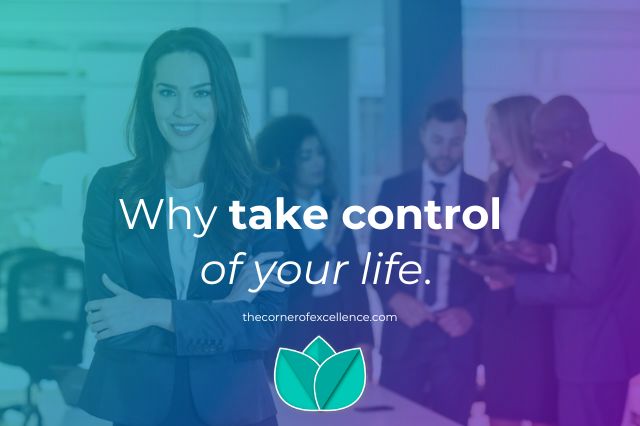[vc_row][vc_column][vc_column_text]A lot is being written about toxic people and how to avoid them. But, what if we all could be that toxic person?
Human beings form an ecosystem of relations. Day to day we deal with family, friends, colleagues, acquaintances and unknown people. Our emotional, mental and educational background, experiences, memories, value system, character and current mood influence our behaviour. With so many factors in play, conflicts and misunderstandings can happen.
But if conflicts occur often, we should analyse whether we are being victims of toxic behaviours caused by others or ourselves. Let us see why toxic situations occur as well as how to deal with toxic behaviours in the work environment.
What is toxic behaviour
I would define toxicity in the workplace as a destabilisation of the environment, obstruction of and interference with the relations as well as harming the company’s functioning and productivity.
Examples of toxic behaviours could be:
- Always wanting to be right and have the last word.
- Sell somebody’s idea as their own.
- Hoard information thinking that this makes us indispensable.
- Leave everything for the last minute and oblige those, we ask for help, to leave everything they are doing to pull our bacon out of the fire.
- Not coordinate or inform the involved appropriately.
- Complain about situations but not propose solutions.
- Criticise others behind their back or even slander them (see workplace harassment).
- Raise the voice or tell others off like they were children.
- Be more around (having a coffee, smoking, chatthing or whatever) that at the workplace. But then complain about work overload.
- Invade colleagues’ personal space.
#ToxicBehaviour destabilises the #environment, obstructs #relations and undermines #productivity Click To Tweet

What does it depend on if we can be toxic
I think it depends on our environment our values and how we relate to other people and work. If our values do not fit with a company’s culture we can seem a difficult or even toxic person.
When being interviewed for a job, it is not easy to know whether we will make a good fit with bosses and colleagues. Moreover, it might be that the company publicises a certain culture and values which has not been made a reality inside the company. So, when a candidate is selected according to those values, he or she may clash with real culture reigning in the company. In this case either the candidate could seem toxic or the new colleagues could seem toxic to him or her.
But even if we fit into the company culture and with the colleagues in general, it is difficult to get along well with everybody. Due to our background, how we see the world, our work style and how we relate to other, we may clash with other people’s way of being.
Likewise we could feel stressed, anxious or ill-tempered and transfer it to people we deal with. That mean that we either behave toxically or transmit our negative energy provoking a reflex we consider toxic behaviour.
Moreover, due to what we have seen about background, values and character, think that a person that could seem toxic to us, might not make the same impression on others. Or we might be of the opinion that a person is toxic and that person may think the same about us.
Social and mental #background and current #mood influence our #behaviour. Don't be #toxic Click To Tweet
How to neutralise toxic behaviour
Let us see how defend ourselves from toxic behaviour we suffer as well as avoid being that toxic person.

Know yourself
Have you ever heard that what irritates us about other people are qualities we do not like about ourselves? Even though it might not exactly be the case, ask yourself why some person or situation riles you up. Are they attacking a personal value you consider sacred? Does it remember you of a situation or person? Does it make you feel something you do not want to experience?
Knowing ourselves will help us become aware of the situation, understand why it affects us and stop the spiral of negative reaction on time. Besides remember that you decide how something or somebody makes you feel. So, learn not to take the situation too personal and let it not get to you.
Everything that irritates us about others can lead us to an #understanding of ourselves. #CGJung Click To Tweet
Show acceptance and understanding
Training our emotional intelligence is key. Apart from know ourselves, we will learn to understand others’ emotions and be empathetic.
Accept that other people can have different ways of facing life. They have their strategies to relate to other people and their way of working which we might not like. Think that, behind the toxic behaviour, they might be hiding dissatisfactions, frustrations, fears or even traumas. Maybe that person has problems at home you do not know about. Or, he/she might be compensating inadequately certain insecurities. Therefore, try not to judge other people for their behaviour in a certain situation but respect and understand them.
Appreciate the diversity of opinions and ways of acting. Would the world not be boring if we were all the same? Actually, that diversity put to good use can help find new, creative and innovate ideas and solutions.
Set boundaries
To be understanding does not mean you ought to accept toxic behaviours just like that. Accept the person but set boundaries to inappropriate behaviours with assertiveness.
Do neither lower yourself to the same level nor enter into the confrontation. It will wear you out and make you feel worse. Do not blame or reproach the person as it will only worsen the situation. Rather explain that you do not like this way of acting or that it affects you to be talked to in that way. If the other person does not retreat or is not open to new arguments, tell him/her kindly that it will be better to continue the conversation another time.
Moreover, it is important to learn to differentiate between people you ask for your help to solve a problem and those who only want to use you as an emotional wastebin to unload their complaints.
#Accept the #person but set #boundarios to #toxicbehaviour with #assertiveness Click To Tweet

Focus on the solutions
Instead of focussing on how the toxic behaviour makes you feel, get frustrated and stressed, think about how you can solve the situation at hand.
Forget about generalisations of the type “he/she always does the same” or “he/she will never change” and concentrate on the present moment. Past conflicts exist in your memory and can only be solved with forgiveness and acceptance. Possible future conflicts are a product of your imagination so do not stress over what has not happened yet.
Focus on the here and now, which is the only place and moment you can solve the problem. What has caused the current conflict and how can you solve it? What can you do right now to solve the problem that has come up?
#Problems can only be solved in the #presentmoment. Neutralise #toxicbehaviour #hereandnow Click To Tweet
Look for the positive
Think that what annoys you can be behaviours that seem irrational, unfair or selfish to you. But do not trap yourself in negative thoughts. Every person has something good and special, something they know do well. Look for that positive part because then they will not irritate and annoy you as much.
Remember that we have different ways of acting so accept that the other person behaves different than you consider to be correct. Respond with sympathy and acceptance to aggressiveness and criticism. This attitude will make you feel better and you even might help the other person to become aware of his/her way of behaving and overcome his/her negativity.
When somebody gets you #riledup, think that each person has something #positive Click To Tweet

Take a distance
It is difficult to accept others and not judge them. There are certain behaviours that attack our values so much that we have a hard time not getting irritated, stressed or even angry.
But there is no need to try to become best friend with that person you consider toxic. The more time you spend together the more irritation can increase. Therefore, reduce relations to the minimum necessary for work and avoid mixing beyond that.
For your #wellbeing, reduce contact with #toxicpeople to the minimum needed for your #work Click To Tweet
Recap
Toxic behaviours originate from our emotional and mental background. Accepting other people and their faults will help us be more understanding and reduce the related stress. Resentment does only introduce us into a spiral of negativity so rather focus on solving the situation here and now.
Which behaviours seem toxic to you and why do they rile you up? How do you deal with toxic situations? Do you think you have behaved like a toxic person at some point?

[/vc_column_text][vc_empty_space][/vc_column][/vc_row]
Sharing is caring!




